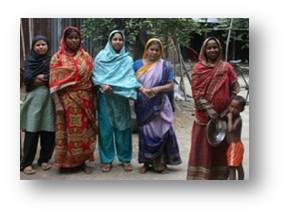News
 ESMAP, the World Bank’s Social Development Department, and the South Asia Energy team hosted a Regional Workshop on Energy and Gender Capacity Building for South Asia, in partnership with the Bangladesh Rural Electrification Board (REB).
ESMAP, the World Bank’s Social Development Department, and the South Asia Energy team hosted a Regional Workshop on Energy and Gender Capacity Building for South Asia, in partnership with the Bangladesh Rural Electrification Board (REB).
The main objectives of the workshop were:
1. Develop a common understanding on why gender matters in energy sectors, especially the value added and development effectiveness of investments by addressing gender dimensions in design and implementation.
2. Increase the capacity of Country Project Counterparts, Bank Staff, and other stakeholders in identifying, addressing, and monitoring gender issues in energy policies, programs, and projects.
3. Pilot an approach for “Training for Action” which could be replicated in other regions’ energy sector and/or in other sectors.
Ms. Ellen Goldstein, Country Director of the World Bank Bangladesh Country Office, gave the welcoming address to the participants and panelists. She welcomed delegates from Afghanistan, Bangladesh, Nepal, India, Pakistan and Sri Lanka, noting that their presence and participation confirm their commitment to the Third Millennium Development Goal, “Promoting Gender Equality and Women’s Empowerment” as well as to the main objective of this workshop “enhance gender equality and promote opportunities for women and men in the energy sector.” Ms. Goldstein noted that this workshop also promotes partnership and knowledge sharing in South Asian countries, in the areas of enhanced gender mainstreaming in the development agenda; and promoting equitable, inclusive and transformative growth.
The workshop took the ‘training of the trainers’ approach, so that counterpart staff could continue to enhance capacity of other project implementers after the workshop. The workshop aimed to be interactive and capitalize on participants’ knowledge and experience; it combined case studies presentations, interactive working groups, and debates in plenary sessions.
The three-day event was broken into four modules with field visits taking place on the second day of the workshop. The field trip is considered an important element to get participants to test their views with the realities on the ground, see “gender in action” and learn from the experience of Bangladesh.
Click the links below to download the proceedings of the workshop.
Related Links:
Gender and Energy: ESMAP Update, May 2010.
Contact: Vanessa Lopes Janik
